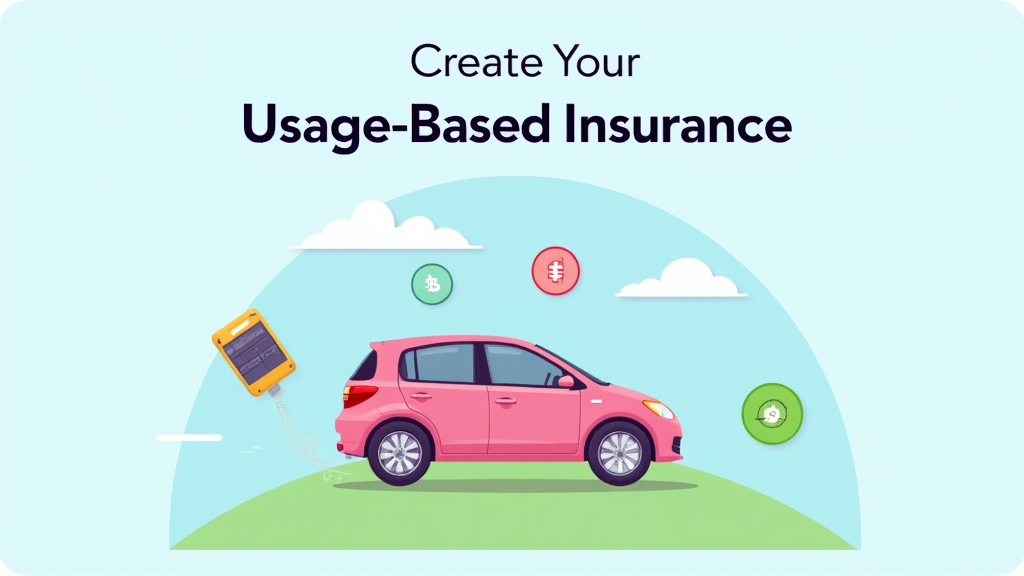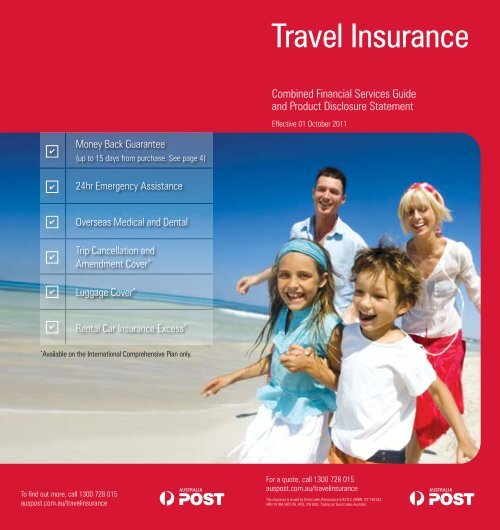Usage-Based Insurance: A Guide to Saving on Premiums
Usage-Based Insurance (UBI) is revolutionizing the car insurance landscape by offering a tailored approach to premiums based on individual driving habits. Unlike traditional insurance models that rely on generalized data like age or gender, UBI utilizes telematics technology to monitor how and when you drive. This innovative system not only promotes safer driving but also provides significant UBI benefits, particularly for those who drive infrequently. By aligning costs with actual driving behavior, pay-as-you-drive insurance allows you to pay only for what you use, making it an appealing option for many Floridians. As we explore how UBI works, it’s essential to consider the advantages it brings, especially in terms of potential savings and personalized coverage.
Also known as pay-as-you-drive or telematics car insurance, Usage-Based Insurance (UBI) offers a fresh perspective on how auto insurance can be more equitable for drivers. This approach tailors insurance costs to actual driving patterns, ensuring that safer drivers are rewarded with lower premiums. By utilizing devices or mobile apps to gather data, insurance companies can assess risk more accurately than traditional methods. As Florida drivers seek more affordable car insurance solutions, understanding how UBI functions and its various options becomes increasingly crucial. With terms like PAYD (pay-as-you-drive) and PHYD (pay-how-you-drive) gaining traction, the conversation around personalized car insurance has never been more relevant.
Understanding the Basics of Usage-Based Insurance (UBI)
Usage-Based Insurance (UBI) is revolutionizing the auto insurance landscape by providing a more personalized approach to premium calculation. Unlike traditional insurance models that rely on demographic data such as age or gender, UBI uses real-time driving data to assess risk. This means that drivers who are more cautious, drive less frequently, or follow traffic laws can enjoy lower rates. The integration of telematics technology allows insurers to gather detailed insights into driving behaviors, making it a win-win for both parties.
Furthermore, UBI can significantly benefit those who live in states like Florida, where driving habits vary widely. For instance, a driver who only takes short trips during the day can save considerably compared to someone who drives long distances or navigates heavy traffic. By focusing on actual driving patterns rather than generalized statistics, Usage-Based Insurance offers a fairer pricing model, encouraging safer driving habits and rewarding responsible drivers with lower costs.
The Benefits of Pay-as-You-Drive Insurance (PAYD)
Pay-as-you-drive insurance (PAYD) presents numerous advantages for drivers who may not use their vehicles frequently. The most significant benefit is the potential for lower premiums based on actual mileage rather than estimates. For those living in urban areas or with shorter commutes, this model can lead to substantial savings. By only paying for the miles driven, infrequent drivers avoid the financial strain of traditional insurance policies that assume a higher average mileage.
Moreover, PAYD encourages drivers to be more mindful of their driving habits. Knowing that their insurance costs are directly linked to how much they drive can motivate individuals to reduce unnecessary trips, ultimately leading to lower fuel consumption and a smaller carbon footprint. This approach not only benefits the driver financially but also contributes to environmental sustainability by promoting less driving.
Exploring Telematics Car Insurance
Telematics car insurance is a critical component of Usage-Based Insurance (UBI), utilizing technology to monitor and analyze driving behaviors. By using a device or smartphone app, the insurance provider collects data regarding speed, braking patterns, and overall driving habits. This data is then used to calculate premiums, offering a more tailored insurance experience for drivers. As a result, safe drivers are rewarded with lower rates, while those with riskier behaviors may see their premiums increase.
In addition to financial benefits, telematics car insurance can provide valuable insights for drivers looking to improve their habits. Many policies include real-time feedback, alerting users to unsafe driving practices and suggesting ways to enhance their driving skills. This not only empowers individuals to become better drivers but also fosters a culture of safety on the roads, reducing the likelihood of accidents and improving overall traffic conditions.
How Usage-Based Insurance Works
Usage-Based Insurance (UBI) operates through the collection and analysis of driving data, which can be gathered via telematics devices or mobile applications. Upon enrollment, drivers either receive a device to install in their vehicle or download an app that monitors their driving. This technology captures crucial data points, such as miles driven, speed, braking habits, and driving times, allowing insurers to assess risk in a more precise manner.
The analysis of this data helps insurance companies adjust premiums accordingly. For example, if a driver consistently demonstrates safe driving habits, they may qualify for lower rates, while those with more aggressive driving behaviors might face higher premiums. This dynamic approach to pricing ensures that individuals are rewarded for safe driving, making UBI an appealing option for those seeking a fairer insurance model.
Why Florida Drivers Are Choosing UBI
Florida drivers are increasingly turning to Usage-Based Insurance (UBI) for its potential to provide more equitable premium pricing. In a state known for its diverse driving conditions and high rates of accidents, UBI offers a refreshing alternative to traditional insurance models. By focusing on actual driving behavior rather than demographic factors, UBI can help many drivers save money while ensuring they are only paying for the level of risk they present.
Additionally, with a significant number of residents relying on their vehicles for occasional trips, the pay-as-you-drive model resonates well with Florida’s driving culture. Infrequent drivers, particularly those who only use their cars on weekends or for short errands, benefit from policies that reduce premiums based on mileage, making UBI a popular choice among the state’s residents.
Telematics and Its Role in Usage-Based Insurance
Telematics technology is the backbone of Usage-Based Insurance (UBI), enabling insurers to gather real-time data on driving behaviors. By using GPS and onboard diagnostics, insurers can monitor how fast a driver accelerates, how hard they brake, and even the time of day they are on the road. This data is invaluable as it allows insurance companies to craft policies that reflect individual risk levels rather than relying on broad assumptions associated with traditional insurance models.
Moreover, telematics car insurance not only helps in pricing but also plays a crucial role in improving driver safety. Many telematics programs offer feedback to drivers, highlighting areas for improvement and encouraging safer driving practices. This proactive approach not only helps reduce accidents but also contributes to lower insurance costs over time, making it a beneficial option for both insurers and policyholders.
How Pay-How-You-Drive Insurance Benefits Safe Drivers
Pay-how-you-drive insurance (PHYD) is particularly advantageous for safe drivers who are looking to reduce their auto insurance costs. This model focuses on driver behavior rather than just the number of miles driven, offering potential savings for those who demonstrate safe driving habits. By analyzing data such as braking patterns and acceleration, insurers can incentivize cautious driving, rewarding those who prioritize safety on the road.
For drivers who consistently adhere to speed limits, avoid sudden stops, and drive during safer hours, PHYD can result in significant premium reductions. This approach not only benefits the driver financially but also promotes a safer driving culture, as it encourages more drivers to adopt responsible driving habits. As a result, PHYD is becoming an increasingly popular choice for conscientious drivers seeking to lower their insurance costs.
Key Considerations When Choosing UBI
When considering Usage-Based Insurance (UBI), it’s essential to assess your driving habits and lifestyle. Factors such as how often you drive, the distances you typically cover, and your overall driving behavior will play a significant role in determining whether UBI is a suitable option for you. For those who drive infrequently or engage in safe driving practices, UBI can lead to considerable savings on premiums.
Additionally, understanding the terms of the UBI policy is crucial. Some insurers may offer discounts based on mileage, while others may focus on driving behavior. It’s important to compare different providers and their offerings to ensure you select a policy that aligns with your driving patterns. By taking these factors into account, you can make an informed decision that maximizes your potential savings and enhances your overall driving experience.
The Future of Usage-Based Insurance in Florida
As technology continues to advance, the future of Usage-Based Insurance (UBI) in Florida looks promising. With more drivers seeking personalized insurance solutions and a growing emphasis on safe driving behaviors, UBI is likely to gain further traction in the state. Insurers are expected to enhance their telematics offerings, providing even more detailed insights into driving habits and allowing for more tailored premium adjustments.
Moreover, as awareness of UBI spreads, more drivers will likely recognize the benefits of this model over traditional insurance policies. The potential for cost savings, coupled with the encouragement of safer driving practices, positions UBI as a viable option for Florida drivers looking to navigate the complexities of auto insurance in a modern and cost-effective way.
Frequently Asked Questions
What are the benefits of Usage-Based Insurance (UBI)?
Usage-Based Insurance (UBI) offers several benefits, including potential cost savings for low-mileage drivers, fairer pricing based on actual driving habits, and the opportunity to improve driving behavior through real-time feedback. By focusing on how and when you drive, UBI can help you avoid paying high premiums typical of traditional insurance models.
How does pay-as-you-drive insurance work?
Pay-as-you-drive insurance (PAYD) works by tracking your driving habits through a telematics device or app. It collects data on mileage and driving times, allowing insurers to adjust your premiums based on how much you drive. Less driving typically results in lower insurance costs, making it ideal for infrequent drivers.
What is telematics car insurance and how does it relate to UBI?
Telematics car insurance is a technology that underpins Usage-Based Insurance (UBI). It involves using a device or mobile app to monitor your driving habits, such as speed and braking. This data helps insurers evaluate risk and adjust premiums accordingly, rewarding safe driving with lower rates.
Why are drivers in Florida choosing Usage-Based Insurance (UBI)?
Drivers in Florida are turning to Usage-Based Insurance (UBI) due to its ability to provide fairer premiums based on actual driving behavior rather than generalized factors like age or location. UBI also offers significant savings for occasional drivers who do not want to pay high premiums for infrequent use of their vehicles.
What should I consider when choosing Usage-Based Insurance (UBI) in Florida?
When selecting Usage-Based Insurance (UBI) in Florida, consider your typical mileage and driving habits. If you drive infrequently, pay-as-you-drive insurance (PAYD) may be advantageous. Conversely, if you are a safe driver, pay-how-you-drive insurance (PHYD) could offer better rates by rewarding safe behaviors.
How does pay-how-you-drive insurance (PHYD) differ from pay-as-you-drive insurance (PAYD)?
Pay-how-you-drive insurance (PHYD) focuses on the quality of your driving behaviors, such as speeding and braking patterns, while pay-as-you-drive insurance (PAYD) primarily tracks mileage. PHYD can help cautious drivers save more on premiums by encouraging safer driving habits.
Can I save money with mileage-based car insurance?
Yes, mileage-based car insurance can lead to significant savings for drivers who do not drive often. This type of insurance adjusts premiums according to the actual distance you travel, making it a fair option for those with low mileage.
What are the top companies offering UBI in Florida?
Top companies offering Usage-Based Insurance (UBI) in Florida include Root Insurance, which bases rates on driving habits, Progressive with its Snapshot program, and Allstate’s Drivewise program, all of which utilize telematics to tailor premiums.
Is Usage-Based Insurance (UBI) suitable for all drivers?
Usage-Based Insurance (UBI) may not be suitable for all drivers. If you drive a lot or exhibit risky driving behaviors, UBI may lead to higher premiums. However, for low-mileage or safe drivers, UBI can provide substantial savings and fairer pricing based on actual driving habits.
How can I get started with telematics car insurance?
To get started with telematics car insurance, you can sign up with an insurer offering a UBI program. They will provide a telematics device or require you to download a mobile app to track your driving. Once enrolled, your driving data will be analyzed to help set your premiums.
| Key Points | Details |
|---|---|
| What is UBI? | A type of auto insurance that tracks driving behavior using telemetry to determine premiums. |
| How UBI Works | Uses devices/apps to monitor driving habits like speed, braking, and mileage to adjust rates accordingly. |
| Pay-as-You-Drive (PAYD) | Focuses on how much you drive; less driving can lead to lower premiums. |
| Pay-How-You-Drive (PHYD) | Focuses on how you drive; safe driving can lower premiums. |
| Benefits of UBI | Fairer pricing, potential savings for low-mileage drivers, and incentives for safe driving. |
| UBI Providers in Florida | Major companies include Root Insurance, Progressive Snapshot, and Allstate Drivewise. |
| Considerations for UBI | Evaluate your mileage and driving habits before opting for UBI. |
Summary
Usage-Based Insurance (UBI) is revolutionizing the way car insurance is priced by linking premiums directly to individual driving behavior. This innovative approach not only provides a fairer pricing model but also rewards safe driving and low mileage with potential cost savings. For drivers in Florida, options like Root, Progressive, and Allstate are leading the way in providing UBI solutions that cater to diverse driving habits. Overall, UBI represents a shift towards more personalized insurance policies that align better with how people actually drive.






